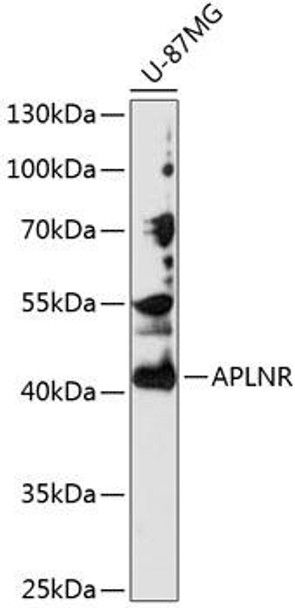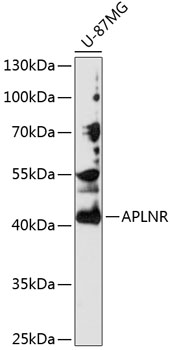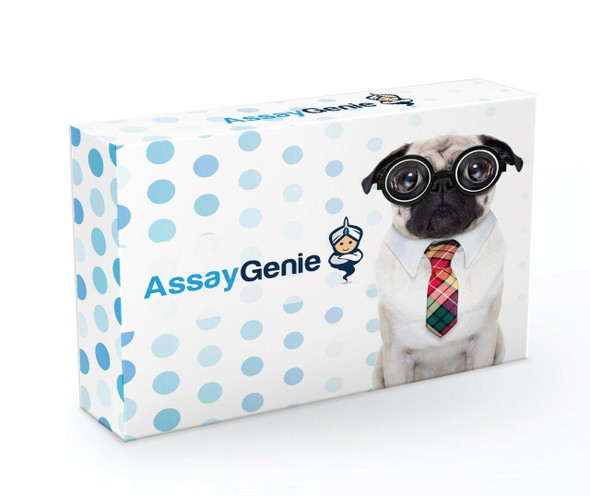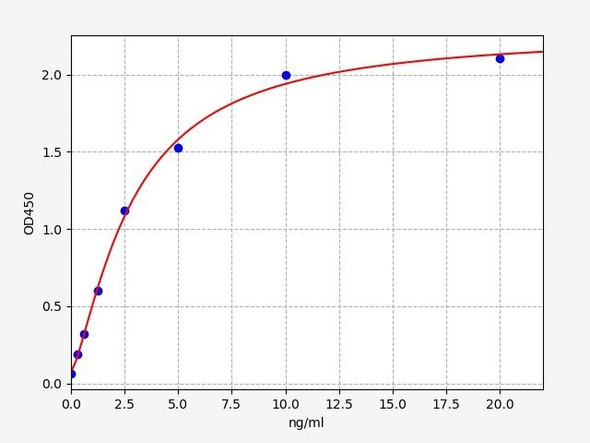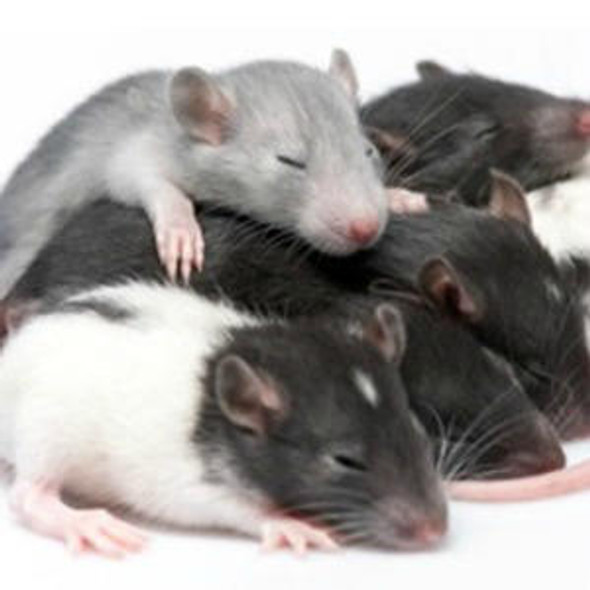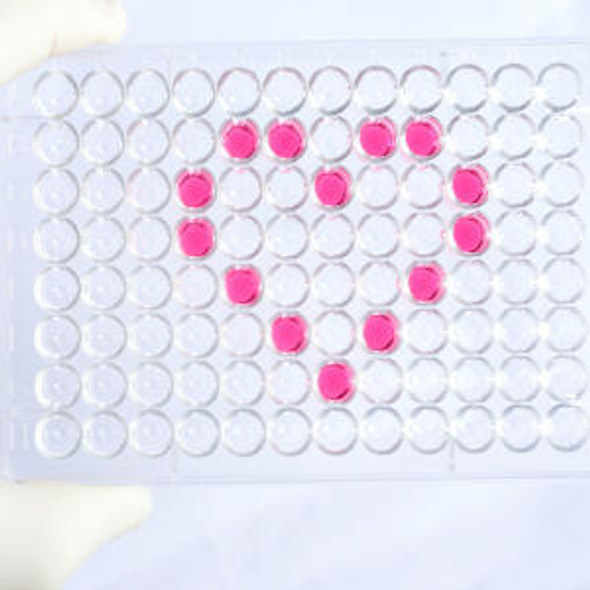Cardiovascular Antibodies
Anti-APLNR Antibody (CAB2659)
- SKU:
- CAB2659
- Product Type:
- Antibody
- Reactivity:
- Human
- Host Species:
- Rabbit
- Isotype:
- IgG
- Research Area:
- Cardiovascular
Description
| Antibody Name: | Anti-APLNR Antibody |
| Antibody SKU: | CAB2659 |
| Antibody Size: | 20uL, 50uL, 100uL |
| Application: | WB |
| Reactivity: | Human |
| Host Species: | Rabbit |
| Immunogen: | Recombinant fusion protein containing a sequence corresponding to amino acids 301-380 of human APLNR (NP_005152.1). |
| Application: | WB |
| Recommended Dilution: | WB 1:200 - 1:1000 |
| Reactivity: | Human |
| Positive Samples: | U-87MG |
| Immunogen: | Recombinant fusion protein containing a sequence corresponding to amino acids 301-380 of human APLNR (NP_005152.1). |
| Purification Method: | Affinity purification |
| Storage Buffer: | Store at -20'C. Avoid freeze / thaw cycles. Buffer: PBS with 0.02% sodium azide, 50% glycerol, pH7.3. |
| Isotype: | IgG |
| Sequence: | NSCL NPFL YAFF DPRF RQAC TSML CCGQ SRCA GTSH SSSG EKSA SYSS GHSQ GPGP NMGK GGEQ MHEK SIPY SQET LVVD |
| Gene ID: | 187 |
| Uniprot: | P35414 |
| Cellular Location: | Cell membrane, Multi-pass membrane protein |
| Calculated MW: | 42kDa |
| Observed MW: | 43kDa |
| Synonyms: | APLNR, AGTRL1, APJ, APJR, HG11 |
| Background: | This gene encodes a member of the G protein-coupled receptor gene family. The encoded protein is related to the angiotensin receptor, but is actually an apelin receptor that inhibits adenylate cyclase activity and plays a counter-regulatory role against the pressure action of angiotensin II by exerting hypertensive effect. It functions in the cardiovascular and central nervous systems, in glucose metabolism, in embryonic and tumor angiogenesis and as a human immunodeficiency virus (HIV-1) coreceptor. Two transcript variants resulting from alternative splicing have been identified. |
| UniProt Protein Function: | AGTRL1: Receptor for apelin coupled to G proteins that inhibit adenylate cyclase activity. Alternative coreceptor with CD4 for HIV-1 infection; may be involved in the development of AIDS dementia. Belongs to the G-protein coupled receptor 1 family. |
| UniProt Protein Details: | Protein type:GPCR, family 1; Membrane protein, multi-pass; Receptor, GPCR; Membrane protein, integral Chromosomal Location of Human Ortholog: 11q12 Cellular Component: integral to plasma membrane; plasma membrane Molecular Function:G-protein coupled receptor activity; receptor activity Biological Process: G-protein coupled receptor protein signaling pathway; regulation of body fluid levels; heart development; gastrulation |
| NCBI Summary: | This gene encodes a member of the G protein-coupled receptor gene family. The encoded protein is related to the angiotensin receptor, but is actually an apelin receptor that inhibits adenylate cyclase activity and plays a counter-regulatory role against the pressure action of angiotensin II by exerting hypertensive effect. It functions in the cardiovascular and central nervous systems, in glucose metabolism, in embryonic and tumor angiogenesis and as a human immunodeficiency virus (HIV-1) coreceptor. Two transcript variants resulting from alternative splicing have been identified. [provided by RefSeq, Jul 2009] |
| UniProt Code: | P35414 |
| NCBI GenInfo Identifier: | 543823 |
| NCBI Gene ID: | 187 |
| NCBI Accession: | P35414.1 |
| UniProt Related Accession: | P35414 |
| Molecular Weight: | 380 |
| NCBI Full Name: | Apelin receptor |
| NCBI Synonym Full Names: | apelin receptor |
| NCBI Official Symbol: | APLNR |
| NCBI Official Synonym Symbols: | APJ; APJR; HG11; AGTRL1 |
| NCBI Protein Information: | apelin receptor; APJ receptor; HG11 orphan receptor; APJ (apelin) receptor; angiotensin receptor-like 1; G protein-coupled receptor APJ; G-protein coupled receptor APJ; angiotensin II receptor-like 1; G-protein coupled receptor HG11 |
| UniProt Protein Name: | Apelin receptor |
| UniProt Synonym Protein Names: | Angiotensin receptor-like 1; G-protein coupled receptor APJ; G-protein coupled receptor HG11 |
| Protein Family: | Apelin receptor |
| UniProt Gene Name: | APLNR |
| UniProt Entry Name: | APJ_HUMAN |
View AllClose

